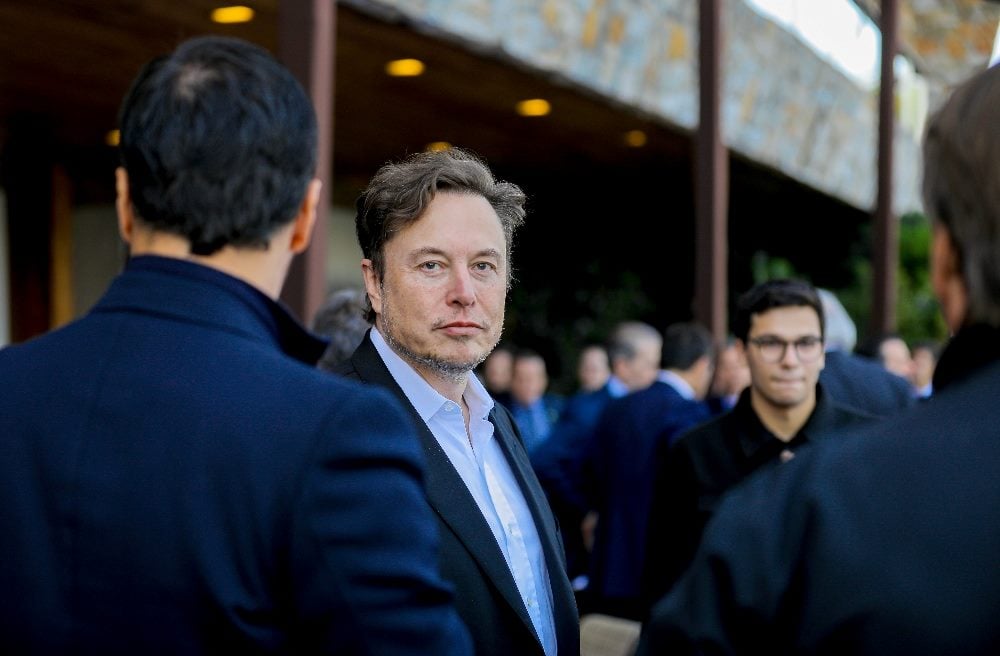The Gist
- CEO impact crucial. Altman and Musk show CEO actions crucially influence brand resonance, impacting customer connection and experience.
- Brand resonance challenges. Effective brand resonance management requires evolving with technology and media, a task both Altman and Musk navigate.
- Multiple brand risks. Musk's actions risk harming multiple brands, demonstrating the interconnected effects of a CEO's public behavior.
The business world is simmering down from the chaos around Sam Altman’s tenure at OpenAI and the criticism of Elon Musk’s antisemitic comment on his platform X. Both situations are as different as circumstances can be, yet both reflect how a CEO’s presence influences brand resonance — the messaging that connects brands to customer experiences on a deeper, more emotional level.
Understanding the interplay between leadership and brand resonance is crucial for preventing missteps that can worsen customer experience and lead to customer loss.

Brand Resonance: The Current Score on Altman and Musk
Repercussions from the climax of both well-known stories are still emerging as I type. For Altman, OpenAI rehired him as CEO only a few days after firing him and after 700 employees declared they would follow Altman to Microsoft if he was not reinstated. Microsoft, a major investor, had also hired Altman immediately to keep him within the decision management team and visible to ChatGPT users.
Meanwhile Elon Musk endorsed an antisemitic tweet, agreeing with a message displaying a violent antisemitic conspiracy theory. This theory was similar to that espoused by the perpetrator of the 2018 Tree of Life synagogue attack, sparking a flood of criticism and censure.
Criticism is mounting as Twitter, renamed X, has fallen out of favor with advertisers, one of the platform's core customer audiences. Following Musk's $44 billion acquisition in October 2022, advertisers have deserted the platform, concerned that current moderation fails to shield brands from misinformation and conspiracy theories. Reuters reported that more than 200 advertisers, like IBM, Disney, Apple and Ubisoft, paused or scrapped campaigns due to these controversies.
Related Article: Why 'X'? What Lessons Does Twitter Rebranding Hold for Marketers?
What Is Brand Resonance?
Brand resonance describes the bond a brand forms with its customers, connecting deeply and emotionally. It's a brand development stage where customers cultivate strong loyalty and emotional attachment, resonating with the brand's message.
This connection often leads to repeat purchases and word-of-mouth promotion. Brand resonance is built over time and is the result of consistent positive experiences and emotional engagement. It's considered the ultimate goal in brand building, as it represents a strong, personal, and often community-like bond between the brand and its customers.
Related Article: Don't Decimate Your CX Strategy When You Leave Twitter
No One Will Influence Like Steve Jobs Did
Years after his death, Steve Jobs continues to inspire today's technologists. Representing the apex of business and entrepreneurship, Jobs' infamous 1985 dismissal from Apple and triumphant return, sparking a golden era, solidified the notion that leadership is crucial to a brand's success. His story exemplifies how a brand can become intertwined with a CEO's narrative in the marketplace.
However, Jobs' shortcomings — notably, his reputation for overworking employees — and successes unfolded in an era vastly different from the media-centric landscape that Altman, Musk, and other contemporary entrepreneurs navigate today.
Media, being more diffuse and open to dialogue, makes it challenging for leaders to ensure all actions and messages align with the key elements that resonate with customers.
Musk frequently speaks off the cuff on X, reinforcing his assertion that freedom of speech is under threat online.
That’s not the issue.
Elon Musk's tenure at X exemplifies the consequences of disrupting brand resonance. Resonance evolves through various stages and branding efforts. When a market, whether consumer or corporate, views a founder's presence as a disruption to their customer experience, it can alter the customers' brand appreciation and can influence their decision on whether to continue to engage with that brand.

Musk may have overlooked the fact that the global business environment has evolved significantly, especially since the COVID-19 pandemic. The influence of digital platforms and business leadership now extends far beyond previous eras, compelling CEOs to better comprehend and steward their roles within this landscape. They must be vigilant against messages going astray. In this era, there are no excuses.
Brand resonance elevates customer expectations, fostering a connection because the brand "gets" them. For leaders to successfully manage these expectations, it's crucial to understand the evolving relationship between message and actions, especially in the context of technology usage.
Leaders should still be deeply engaged with their company's brand, but CEOs now need to craft a brand mystique distinct from what Steve Jobs accomplished. The public's increased voice, coupled with the mixed impacts of social media, has transformed communication dynamics. People now have more avenues to dissect and respond to messaging.
Altman Is Clearly the Face of OpenAI’s Brand Resonance
In addition to helming the most important tech company today, Altman is also the face of Microsoft’s investment. Hiring Altman within 24 hours of his departure highlights Microsoft's commitment to safeguarding its investment. While the specifics of Altman's role with Microsoft and OpenAI are yet to be finalized, it acknowledges that their investment holds limited value without his involvement in its development.
Altman's return signifies a new phase in ChatGPT's marketing strategy. In today's startup landscape, product branding is often closely tied to its founder, like Zuckerberg with Meta and Bezos with Amazon. Concerns surrounding ChatGPT primarily revolve around societal AI risks versus its growing commercialization.
How Many Brands Did Musk Risk? A lot
Musk potentially risks harming three brands simultaneously, affecting the platforms they represent. X has taken the most immediate and noticeable hit. Insider Intelligence predicted a steep year-over-year decline in global ad spending for X from 2022 to 2023. Given the continuing withdrawal of advertisers, this decline is anticipated to be even more significant.
The next immediate brand at risk is Grok by xAI, a yet-to-be fully established entity. Grok, designed to respond and answer queries using Twitter data, was slated for inclusion in Twitter's premium services. However, as user numbers potentially decline, the data pool diminishes. Therefore, Musk's remarks could significantly impact Grok's success if the controversy maintains its momentum.
The third brand at risk is Tesla. Changes in vehicle sales aren't immediate following news stories — buying a new car is a complex process, so customers may not instantly abandon a purchase, whether they're new or returning. However, news of Musk's comments did affect Tesla's stock price. The stock dropped nearly 4% right after Musk's remark, although it largely rebounded in the following days.
X's road to recovery seems murky. Musk endorsing bigoted conspiracy theories could irreversibly damage X’s relationship with corporate advertisers, potentially accelerating a user exodus. Maintaining a robust user community is crucial for attracting audience attention and introducing new customer experiences.
Crucially, alternatives to social media advertising exist, such as retail media platforms and podcasts. Major advertisers can invest in these mediums with fewer concerns about brand risk.
Know When Customer Love Is Leaving the Table
Nina Simone once sang, “You’ve got to learn to leave the table when love is no longer being served.” Similarly, executive teams must recognize when the actions of their most visible public figures risk making customers feel betrayed by their brand's values. Brand resonance involves ensuring customers don't leave the branding table feeling unserved.
